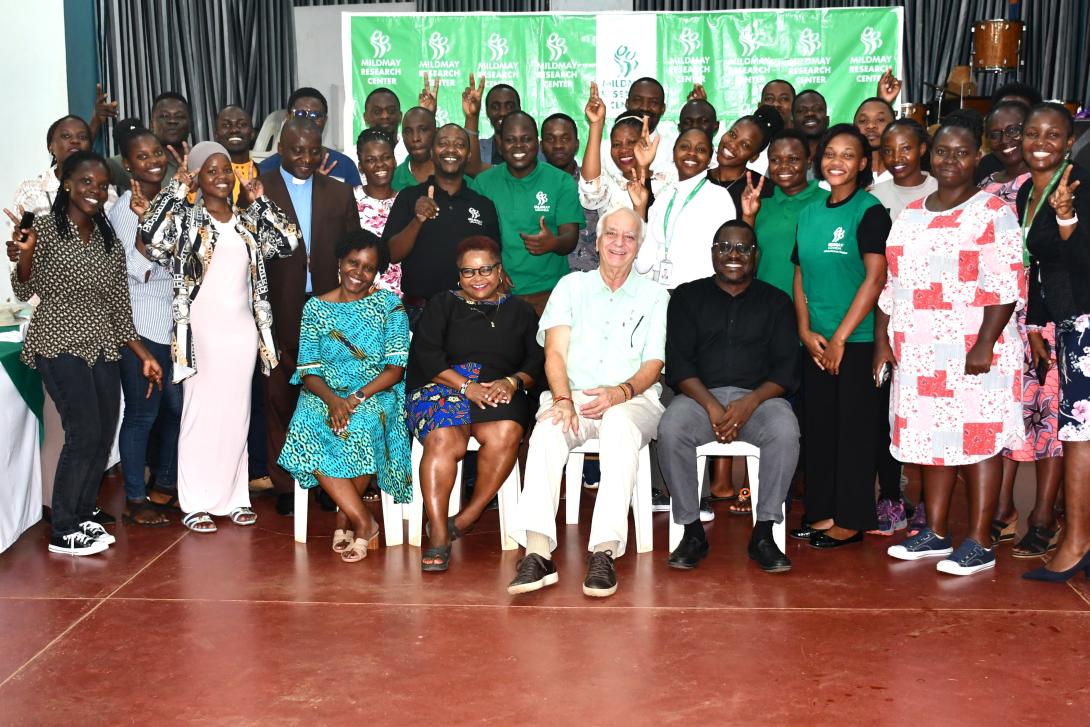Empowering Local Research Capacity: Highlights from the MicroResearch Training Workshop at Mildmay Uganda
From October 11th to 25th, 2024, Mildmay Uganda proudly hosted the MicroResearch Training Workshop, a transformative two-week program aimed at strengthening local research capacity in Africa. Organized by MicroResearch International, this initiative emphasizes the viewpoint that local problems require local solutions, achieved through multidisciplinary health research teams working within their communities.
The workshop was facilitated by Dr. Robert Bortolussi (co-founder of MicroResearch International) and Dr. Barbara Hamilton-Hinch (Assistant Vice‐Provost Equity and Inclusion, Dalhousie University) and co-taught by Dr. Ronald Mulebeke (Director, Mildmay Research Centre Uganda, MRCU), Ms. Phiona Nakigudde (Mildmay Institute of Health Sciences, MIHS), Ms. Mary Odiit (MRCU), Ms. Victor Nanono (MRCU) and Dr. JaneFrank Nalubega (MIHS). Participants included professionals from MIHS, Mildmay Uganda Hospital (MUG), and MRCU, reflecting a multidisciplinary approach essential for impactful health research.
The training offered hands-on sessions that combined lectures, group activities, and personalized coaching to guide participants in developing actionable research proposals. Key highlights of the workshop included; Understanding Basic Research Methodology where participants delved into the fundamentals of research, including identifying and refining research questions using the FINER criteria (Feasible, Interesting, Novel, Ethical, and Relevant). They explored mixed methods research (qualitative and quantitative) and learned how to conduct literature searches using scientific databases. Sessions on Good Clinical Practice (GCP) and Research Ethics provided valuable insights into the ethical considerations and approval processes in Uganda and beyond. Participants also had Grant Writing and Proposal Development sessions, an integral part of the training to empower participants to draft competitive research proposals. These drafts underwent vetting by experienced judges who provided constructive feedback. Participants worked in teams to develop project proposals eligible for funding of 1,500 Canadian dollars per project, fostering collaboration and sharpening their grant writing skills.
Recognizing that research outcomes must translate into real-world impact, the workshop emphasized knowledge translation and community engagement. Participants learned how to plan for dissemination through policy briefs, community dialogues, and stakeholder engagement. These efforts aim to ensure that research findings are accessible and actionable for communities and policymakers alike.
The workshop featured group-led projects guided by experienced coaches. Participants were divided into four multidisciplinary teams based on their qualifications, research experience, and other criteria with each team supervised by esteemed coaches; Dr. Moses Balina, Ms. Patience Kukundakwe, Ms. Mary Odiit and Dr. JaneFrank Nalubega. Each team selected a research question aligned with the FINER criteria and presented their proposals to a panel of judges: Dr. Joseph Mwaka, Dr. Edrin Jjuuko, and Mr. Kibirige Gordon.
On the final day, the panel reviewed the projects, offering valuable feedback for refinement. In her remarks, Executive Director, Dr. Yvonne Karamagi inspired the participants with the statement: “Those who publish, do not perish.”
Since its inception in 2008, MicroResearch International has equipped African researchers with the tools and mentorship needed to address pressing health challenges. This year’s workshop continued that legacy, fostering collaboration and innovation among participants from diverse backgrounds. The success of the 2024 MicroResearch Training Workshop is a testament to the power of community-driven research. By equipping local researchers with the skills to identify, investigate, and address health challenges, the initiative contributes to better health outcomes for communities in Uganda and across Africa.
